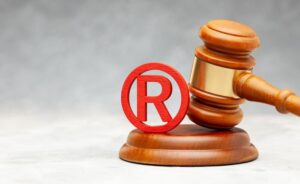
Beyond Likes and Shares – Navigating Legal Waters as a Content Creator
The promise of owning supercars, flying in private jets and making millions of dollars inspires lots of young people to become influencers. You don’t really need a talent to become popular on Instagram, anyway.
You just need to capture people’s attention. Create content that can grow your channel and then partner with brands to get rich. It sounds simple. But an effort to become famous on social media has put hundreds of influencers behind bars.
Some jailed influencers got into legal trouble for committing obvious crimes. Others could have avoided trouble with the law if they understood a thing or two about the laws that govern content creation.
In this article, we’ll help you stay on the good side of the law by outlining legal issues you should know as a content creator. Let’s get started.
What Creators Need to Know About The Law ?
Copyright and Fair Use Law
Copyright Law protects artists and content creators from content theft, abuse and misuse. The law applies to all forms of content, from music and videos to images and written texts.
Copyright Law allows you to use someone else’s content legally for as long as you’re not attempting to benefit financially from the content. If you have an intention to make money by using someone else’s content, you risk a lawsuit that could lead to a penalty or jail term.
As a content creator, you should understand how Copyright law affects you. For starters, the law prohibits you from using another person’s content and passing it as your own.

If you must use someone else’s content, you must give credit where it is due. Sometimes you need to ask for permission from the content creator. Or, you must royalties to sample another artist’s work.
In certain cases, you can reference another person’s content while offering a commentary, criticism, conducting research or providing information. This is called fair use.
Let’s say you run a website that reviews casinos not on gamstop. You can use the logos and brand images of the casinos you’re recommending without being sued. That’s because providing information about brands allows you to use the material fairly.
Disclosure Requirements
Last year, the Security and Exchange Commission (SEC) fined several high-profile celebrities millions of dollars for promoting companies without revealing they were receiving monetary compensation.
YouTuber Lohan Paul, rapper Lil Yachty, Ne-Yo, Akon, and DJ Khaled are some of the biggest celebrities fined last year for promoting brands without adhering to the Disclosure Requirement law.

Disclosure Requirement doesn’t affect celebrities alone. If you’re a blogger, you’re required to reveal that you’ll be making money through sponsored content.
Also, you should include a disclosure agreement for affiliate links. This way, your audience will know clearly that you’ll be benefiting financially from recommending certain products and brands.
The Disclosure Agreement law was created to protect consumers from misleading content creators. Far too many people buy products just because they’ve been recommended by an influencer. Yet, some of the products are ineffective, overpriced and contain false advertising.
Trademark and Branding
Branding describes any words, phrases, images or logos a company uses to set itself apart from the competition. While creating content online, it is important to be aware of the symbols, words and images you use to avoid infringing another brand’s trademarks.
This is especially true when dealing with registered trademarks. Branding yourself using trademarked symbols and words could land you into legal issues. This could greatly impact your reputation and lead to penalties.

How do you know you’re infringing another company’s trademark? Usually, most brands let you know when using their trademarks illegally. Sometimes your fans will let you know that your branding looks too similar to another brand.
Once you realize that you’re infringing another brand’s trademarked logo, tagline or branding messages, consider adjusting your branding efforts. Then learn how to identify registered trademarks to avoid breaking the law henceforth.
Privacy and Data Protection
Data protection is yet another important law you need to be aware of as a content creator in this digital age. You could be a blogger, YouTuber or a social media influencer.
If you handle large volumes of people’s data, you need to learn about the Privacy and Data Protection Law. This law demands that you ask for content while collecting data and reveal your intentions with the data to your customers.

Importantly, the law requires you to secure any data you’re in charge of through encryption and privacy. Breaking the data protection law can cost you customers, money and penalties.
The exact fines for breaking data privacy laws vary from one country to another. In most places, you can walk away with a fine. However, the reputation damage that might follow you after a data breach could damage your brand irrevocably.
Data Protection laws are always changing. In 2018, the EU made global headlines after introducing GDPR rules. Now, it’s already working on new laws that could restrict how tech companies, e-commerce stores, and influencers handle user data even further. Keep an eye on these new laws to ensure you’re fully compliant.
Defamation and Libel Laws
Defamation is perhaps the most abused law by influencers. Over the past couple of years, several social media figures have been sued for slander, libel and general defamation in different countries.
One of the reasons influencers get sued for defamation is failure to understand the law. Defamation means to damage someone’s reputation through slander and libel.

You’re guilty of defamation if you attack someone through lies and false accusations. An example is a case involving influencer Tina Kim and a Koreatown plastic surgery centre.
Kim told her fans Wave Plastic Surgery Center in Koreatown was a horrible place. She advised them not to visit the place despite never having been a patient at the place. She’s now being sued for defamation.
General Terms and Conditions
General website terms and conditions affect your relationship with customers. Can they create content on your platform? What are your rules? As an online business owner, you need to create terms that remind your fans that user-generated content does not reflect your opinion.
Additionally, you need to remind users that you reserve the right to take down their content if it infringes intellectual property or consists of defamatory remarks. Also, you need to provide clarity on who owns the content users generate on your platforms.
Author Profile

Latest entries
 TechnologyMarch 31, 2025The Future of Text-to-Speech: Transforming Communication in Healthcare
TechnologyMarch 31, 2025The Future of Text-to-Speech: Transforming Communication in Healthcare TechnologyMarch 28, 2025Top-Rated Tools Every Modern Recruiter Needs in Their Toolkit
TechnologyMarch 28, 2025Top-Rated Tools Every Modern Recruiter Needs in Their Toolkit marketingMarch 21, 2025How Businesses Can Leverage YouTube Video Makers for Marketing & Ads?
marketingMarch 21, 2025How Businesses Can Leverage YouTube Video Makers for Marketing & Ads? Online BusinessMarch 21, 2025Feature Requests as a Growth Strategy: How User Insights Drive Product Innovation?
Online BusinessMarch 21, 2025Feature Requests as a Growth Strategy: How User Insights Drive Product Innovation?

